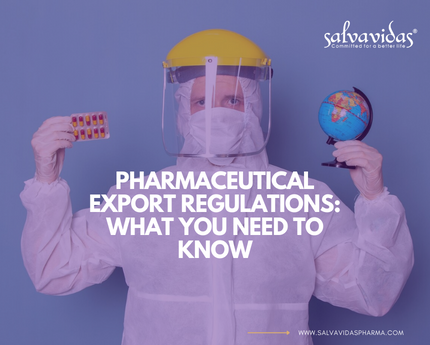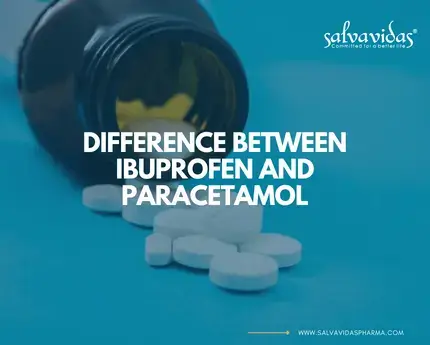
Introduction
Pharmaceuticals play a crucial role in maintaining public health and well-being, and it is essential that they are produced, distributed, and exported in a manner that ensures their quality and safety. The international trade of pharmaceuticals is subject to a complex web of regulations and laws, designed to protect public health and promote fair competition.
As a pharmaceutical manufacturer or distributor, it is essential that you have a clear understanding of these regulations. Failure to comply with these regulations can result in serious consequences, including fines, legal action, and reputational damage. In this article, we will provide an overview of the most important pharmaceutical export regulations, what you need to know, and how to ensure compliance.
Essential Pharmaceutical Export Regulations: What You Need to Know
Good Manufacturing Practices (GMP)
Good Manufacturing Practices (GMP) are a set of internationally recognized standards that ensure the quality and safety of pharmaceuticals. GMP regulations apply to all stages of the manufacturing process, from raw materials to finished products, and are designed to prevent contamination and minimize the risk of harm to patients.
In order to export pharmaceuticals, manufacturers and distributors must comply with GMP regulations in their country of origin and in the country of destination. In addition, GMP compliance must be demonstrated through regular inspections and audits by regulatory authorities.
Good Distribution Practices (GDP)
Good Distribution Practices (GDP) regulations ensure that pharmaceuticals are stored, transported, and distributed in a manner that maintains their quality and safety. GDP regulations cover a wide range of areas, including temperature-controlled storage, transport, and packaging. Pharmaceutical companies must demonstrate compliance with GDP regulations in order to export their products, and they must also ensure that their suppliers and logistics partners comply with these regulations.
International Trade Agreements
International trade agreements play a significant role in shaping the regulations that govern the export of pharmaceuticals. The most significant of these agreements is the World Trade Organization’s (WTO) Agreement on Trade-Related Aspects of Intellectual Property Rights (TRIPS), which sets out minimum standards for the protection of intellectual property rights in the pharmaceutical sector.
In addition, a number of regional trade agreements, such as the North American Free Trade Agreement (NAFTA) and the European Union’s (EU) Single Market, have specific provisions relating to the trade of pharmaceuticals. These agreements often include additional requirements, such as mandatory clinical trials and pre-approval of new medicines.
Regulatory Approval and Licensing
Regulatory approval and licensing are critical components of pharmaceutical export regulations. In order to export pharmaceuticals, companies must obtain approval from the regulatory authorities in the country of origin and the country of destination. This process can be complex and time-consuming, and it may include clinical trials, laboratory testing, and a detailed review of the product’s manufacturing process and quality control systems.
Documentation Requirements
Documentation is a crucial aspect of pharmaceutical export regulations, and it is essential that companies have accurate and up-to-date documentation for their products and processes. This documentation should include certificates of origin, invoices, shipping documents, and certificates of analysis.
In addition, companies must also have up-to-date regulatory approvals and licenses, and they must be able to demonstrate compliance with GMP and GDP regulations.
FAQs
Q. What are the consequences of failing to comply with pharmaceutical export regulations?
A. Failure to comply with pharmaceutical export regulations can result in a range of consequences, including fines, legal action, and reputational damage. In severe cases, it may also result in the recall or suspension of products, and the closure of manufacturing facilities.
Q. Who is responsible for ensuring compliance with pharmaceutical export regulations?
A. Ultimately, the responsibility for ensuring compliance with pharmaceutical export regulations lies with the manufacturer or distributor of the products. However, companies must also ensure that their suppliers, logistics partners, and other third parties comply with these regulations.
Q. How can companies ensure compliance with pharmaceutical export regulations?
A. Ensuring compliance with pharmaceutical export regulations requires a comprehensive approach that covers all aspects of the business, from product development and manufacturing to distribution and documentation. Companies should regularly review their processes and systems to ensure that they are in line with current regulations, and they should engage with regulatory authorities and industry bodies to stay up-to-date on any changes.
Conclusion
Pharmaceutical export regulations play a critical role in ensuring the quality and safety of pharmaceuticals, and they are subject to constant change and evolution. It is essential that pharmaceutical manufacturers and distributors have a clear understanding of these regulations, and that they take a proactive and comprehensive approach to ensuring compliance. By doing so, they can minimize the risk of harm to patients, protect their reputation, and ensure the continued success of their business.
Pharmaceutical Export Regulations: What You Need to Know is a complex and rapidly evolving field, and companies must stay up-to-date on the latest developments and trends in order to remain compliant and competitive. With the right approach, however, companies can navigate these regulations with confidence and continue to contribute to the global effort to improve public health and well-being.
Contact Us:
Name: salvavidas pharmaceutical pvt. ltd
Email: info@salvavidaspharma.com
Phone No: +91 98983 21242
Address: Corp. Office #803, Shubh Square, Near Lal Darwaja, Surat, Gujarat 395004, India




0